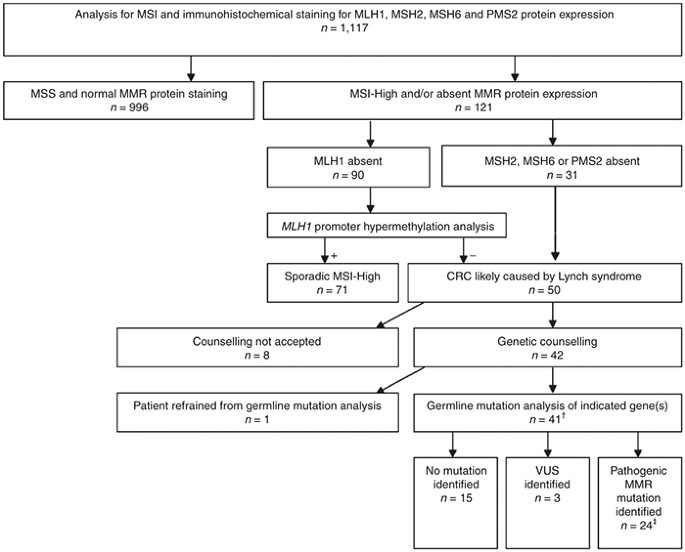Colon Cancer Workup / The Diagnostic Algorithm For Workup Of A Ck7 Ck20 Carcinoma Download Scientific Diagram / Colon cancer is more common than rectal cancer and can be subdivided into proximal (involving the cecum, the ascending colon, and the transverse colon) and distal (involving the descending colon).
Colon Cancer Workup / The Diagnostic Algorithm For Workup Of A Ck7 Ck20 Carcinoma Download Scientific Diagram / Colon cancer is more common than rectal cancer and can be subdivided into proximal (involving the cecum, the ascending colon, and the transverse colon) and distal (involving the descending colon).. It is estimated that approximately 147,950 new cases of large bowel cancer are diagnosed annually in the united states , including approximately 104,610 colon and 43,340 rectal cancers.approximately 53,200 americans are expected to die of large bowel cancer each year. The cancer hadn't spread, and fawn didn't need chemotherapy. Colorectal cancer (crc) is a common and lethal disease. Here you'll learn what to expect from each test and. The results are often normal, even in patients with metastases to the liver.
Rejuvenate & revitalize cells with these 8 ancient immune boosting herbs that work. Colorectal cancer can be identified during a routine screening. It usually begins as small, noncancerous (benign) clumps of cells called polyps that form on the inside of the colon. Colon cancer is the uncontrolled growth of abnormal cells within the layers of tissue that line the colon. A skillful initial workup for suspected cancer is an essential part of effective primary care practice.

The cancer hadn't spread, and fawn didn't need chemotherapy.
Colon cancer typically affects older adults, though it can happen at any age. Your doctor might find that the. Predicting life expectancy after a colorectal cancer diagnosis: Patients who are undergoing cancer treatment, and colon cancer survivors talk about diagnosis, surgery, treatment, side effects and the many ways that colon cancer has changed their lives. The results are often normal, even in patients with metastases to the liver. Tests also may be used to find out if surrounding tissues or organs. The following tests may be used to diagnose colorectal cancer or find out if it has spread. Finding colorectal cancer early is the key to beating it. When colon cancer is suspected, it is vital for patients to receive a precise diagnosis followed by a targeted treatment plan developed especially for them. After her diagnosis of stage iia colon cancer, fawn had surgery to remove 12 centimeters of her colon and 47 lymph nodes. Colon cancer is more common than rectal cancer and can be subdivided into proximal (involving the cecum, the ascending colon, and the transverse colon) and distal (involving the descending colon). Rejuvenate & revitalize cells with these 8 ancient immune boosting herbs that work. Liver function tests are usually part of the preoperative workup.
The warning signs can be so mild that you don't notice them. That includes earlier diagnosis, increased access to treatment, and better surgical care, according to the researchers. It usually begins as small, noncancerous (benign) clumps of cells called polyps that form on the inside of the colon. Another name for it is metastatic, or stage iv, colon cancer. In a biopsy, the doctor removes a small piece of tissue with a special instrument passed through the scope.

Hereditary nonpolyposis colorectal cancer (hnpcc) or lynch syndrome is an autosomal dominant genetic condition that is associated with a high risk of colon cancer as well as other cancers including endometrial cancer (second most common), ovary, stomach, small intestine, hepatobiliary tract, upper urinary tract, brain, and skin.the increased risk for these cancers is due to inherited mutations.
Find out how colorectal cancer is tested for, diagnosed, and staged. Predicting life expectancy after a colorectal cancer diagnosis: Screening for colon cancer doctors recommend certain screening tests for healthy people with no signs or symptoms in order to look for signs of colon cancer or noncancerous colon polyps. Finding colorectal cancer early is the key to beating it. A test of the number of red cells in the blood, which is part of a complete blood count (cbc), can indicate that bleeding may be occurring. Colon cancer is currently the fourth most common cancer diagnosed in the united states. Colon cancer is a type of cancer that begins in the large intestine (colon). Patients who are undergoing cancer treatment, and colon cancer survivors talk about diagnosis, surgery, treatment, side effects and the many ways that colon cancer has changed their lives. If colon cancer is suspected, your doctor will perform a battery of tests, starting with a physical examination and medical history. Finding colon cancer at its earliest stage provides the greatest chance for a cure. The cancer hadn't spread, and fawn didn't need chemotherapy. It is five feet long and makes up the majority of the large intestine, also called the large bowel. Hereditary nonpolyposis colorectal cancer (hnpcc) or lynch syndrome is an autosomal dominant genetic condition that is associated with a high risk of colon cancer as well as other cancers including endometrial cancer (second most common), ovary, stomach, small intestine, hepatobiliary tract, upper urinary tract, brain, and skin.the increased risk for these cancers is due to inherited mutations.
Learn the 1 key nutrient you need to stimulate & boost body's immune cells to fight cancer. Hereditary nonpolyposis colorectal cancer (hnpcc) or lynch syndrome is an autosomal dominant genetic condition that is associated with a high risk of colon cancer as well as other cancers including endometrial cancer (second most common), ovary, stomach, small intestine, hepatobiliary tract, upper urinary tract, brain, and skin.the increased risk for these cancers is due to inherited mutations. Signs and symptoms may include blood in the stool, a change in bowel movements, weight loss, and fatigue. Colon cancer is currently the fourth most common cancer diagnosed in the united states. A skillful initial workup for suspected cancer is an essential part of effective primary care practice.

Colon cancer is a type of cancer that begins in the large intestine (colon).
Colon cancer is currently the fourth most common cancer diagnosed in the united states. After her diagnosis of stage iia colon cancer, fawn had surgery to remove 12 centimeters of her colon and 47 lymph nodes. A test of the number of red cells in the blood, which is part of a complete blood count (cbc), can indicate that bleeding may be occurring. In a biopsy, the doctor removes a small piece of tissue with a special instrument passed through the scope. Less often, part of the colon may need to be surgically removed to make the diagnosis. Here you'll learn what to expect from each test and. Usually if a suspected colorectal cancer is found by any screening or diagnostic test, it is biopsied during a colonoscopy. Hereditary nonpolyposis colorectal cancer (hnpcc) or lynch syndrome is an autosomal dominant genetic condition that is associated with a high risk of colon cancer as well as other cancers including endometrial cancer (second most common), ovary, stomach, small intestine, hepatobiliary tract, upper urinary tract, brain, and skin.the increased risk for these cancers is due to inherited mutations. When colon cancer is suspected, it is vital for patients to receive a precise diagnosis followed by a targeted treatment plan developed especially for them. Learn the 1 key nutrient you need to stimulate & boost body's immune cells to fight cancer. There are many different tests to detect colorectal cancer. The following tests may be used to diagnose colorectal cancer or find out if it has spread. Finding colon cancer at its earliest stage provides the greatest chance for a cure.

Komentar
Posting Komentar